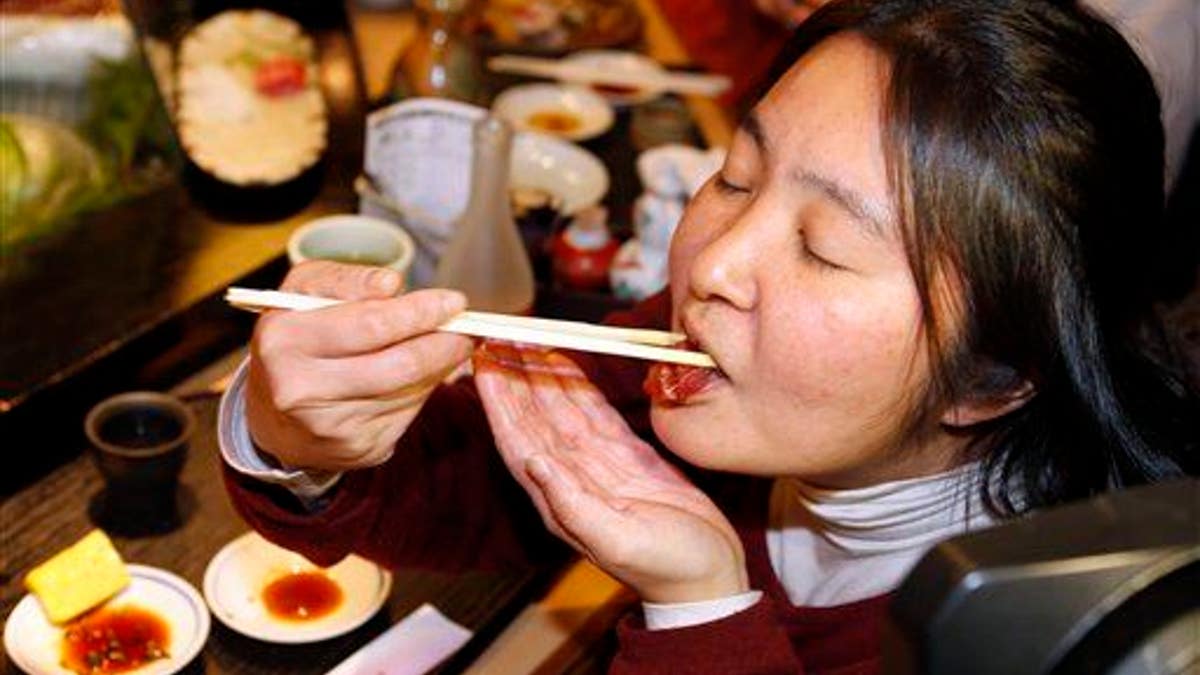
A woman eats a sushi of a bluefin tuna in Tokyo. (AP Photo/Koji Sasahara)
Go ahead and indulge your sushi habit: A new study finds a Japanese diet of fish, rice, seaweed, and sake could add years to your life. Not only does following Japan's dietary guidelines result in a 15 percent lower total mortality rate, but it also lowers one's risk of dying from cardiovascular disease and stroke, according to the study in the British Medical Journal.
The diet encompasses "grains, vegetables, fruits, meat, fish, eggs, soy products, dairy products, confectionaries, and alcoholic beverages," researchers say in a release, though the "Spinning Top" food guide the country introduced in 2005 colorfully specifies the latter two should be enjoyed "moderately!" Researchers surveyed 79,544 people aged 45 to 75 in Japan—where the average life expectancy is 87 for women and 80 for men—about their health and food habits when the study began, then again five and 10 years later.
They then compared eating habits to Japan's dietary guidelines and gave each participant a score based on how closely his or her diet synced with them.
Those who received high scores—meaning they generally adhered to the guidelines—were more likely to be women, drink green tea, and eat more calories, reports Time.
They were also 15 percent less likely to die from all causes and 22% less likely to die from stroke, per Live Science. Though researchers say a diet low in fat and high in fish and soybean products is beneficial, the participants who ate a lot of fruit and veggies, supplemented by fish and meats, profited the most.
(Spicy food might also help you live longer.)
This article originally appeared on Newser: To Live Longer, Eat Like the Japanese
More From Newser








































